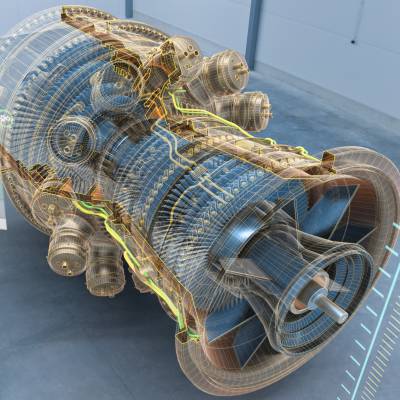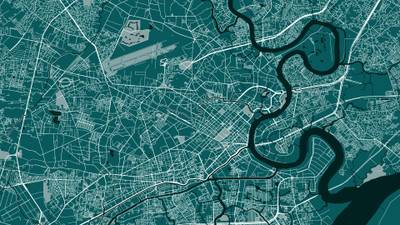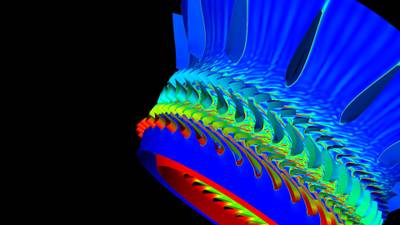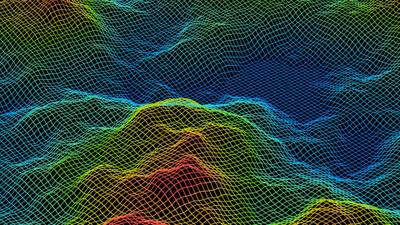Build your skills in project management as a qualified engineer.
Join our online Project Management course for engineers and ready yourself for a move into project management, or a role within a project-related environment.
You’ll get a solid grounding in a range of key topics in project management, focusing on the energy sector, but applicable to any industry.
Who is this online project management course for?
This distance-learning short course is designed primarily to prepare engineers for the move into project management roles in the energy sector and other industries.

Build credits towards an Engineering MSc
This online course is part of:
You can use the credits you earn on this short course towards any of these MSc qualifications.
What you’ll study
In this energy-focused project management course, you’ll cover:
- projects within an overall business context
- the project process
- framing a project
- options generation and selection
- project appraisal
- planning
- costing
- risk management
- business case/project execution plan
- project monitoring and control
- leadership, motivation and team dynamics.
As part of your course, you’ll complete a group work project relating to oil and gas engineering. You’ll apply your learning to develop a detailed project proposal, suitable for approval of funding.
How you’ll study
Online learning
This distance-learning Project Management course is delivered flexibly, 100% online.
You can learn with us anywhere in the world, no student visa required, and manage your study hours to suit you.
Your teaching
The course is taught at Masters level.
Teaching is delivered through MyAberdeen, our online Virtual Learning Environment (VLE). It holds all the materials, tools and support you’ll need in your studies. Take a look around MyAberdeen.
You can access your learning materials on computer, smartphone and laptop, 24 hours a day. You’ll find a range of online resources available, including:
- reading materials
- discussion boards with your tutors and peers
- the online resources of our award-winning Sir Duncan Rice Library.
You’ll be assessed online. Assessment will take place throughout the teaching term.
Types of assessment for this course may include:
- coursework
- online quizzes
- timed online open-book assessments.
Assessment deadlines
Your assessments will have submission deadlines, either during or at the end of the course. Your course coordinator will let you know when your assessment deadlines are, so you can plan your study time accordingly.
The course totals approximately 150 hours of study and assessment time. That’s around 10 – 15 hours per week.
This is an indicative guide to the time required for a typical student at this level to achieve the learning outcomes. This includes time for independent study, as well as teaching and assessments.
You can largely set your own study hours each week to cover the materials. MyAberdeen is available 24/7, so you can log in and study when it suits you.
Activities at fixed times
There may be some activities scheduled for fixed times. This could include coursework and assessments with deadlines, or online meetings with your tutor. Otherwise, you can access and work through the course at your convenience.
Our first-class support structure will ensure that you aren’t alone in your studies. You’ll have contact with your course coordinator throughout your course. This could be by email, MyAberdeen, online call, or phone. You can use social media and discussion boards to chat with your fellow students too.
We provide a wide range of services to support you in your studies and beyond:
- Careers and Employability Service
- Disability support
- IT support
- Library support
- Student Support Service – help with finances, stress, wellbeing and non-academic issues
- Student Learning Service – study support, with advice sessions available via phone or Skype
- Aberdeen University Students’ Association (AUSA) – run by students for students
- Toolkit – clever apps and free training that can make your study life easier
Wherever you are in the world, you’ll feel part of our very special Aberdeen learning community.
Your course coordinator

John Cavanagh
John is the Course Coordinator. He is a Senior Lecturer with 20 years’ experience in the petrochemical and aromatics industries. A former process engineer with ICI, John has extensive technical and business project management experience.
Where this will take you
Towards a Masters
This course is part of one of our Masters degrees. You can use the 15 credits you can earn at Masters level (SCQF Level 11) with this course towards this particular MSc:

Masters in Advanced Mechanical Engineering
Earn your MSc in Advanced Mechanical Engineering online. Study flexibly and build the advanced skills demanded by the world’s leading employers in the automotive, energy, defence, aerospace, and manufacturing sectors.
View MSc Advanced Mechanical Engineering
Accredited Masters in Oil and Gas Engineering
Join an accredited online Masters degree delivered from the Energy Capital of Europe. Master the skills and technologies you need to pursue a career in the upstream and downstream oil and gas industry.
View MSc Oil and Gas EngineeringBuild your learning with more short courses
We offer a range of specialist online Engineering and technology courses you can use to build your skills.
They’re all designed to fit around full-time work. Most carry credits that build up into postgraduate qualifications, including Masters degrees:
Careers
Your employer or professional institute may recognise this course for Continuing Professional Development (CPD). Talk to your employer or institute to find out more.

Free career support
Access our free careers service while you study.
- 1:1 appointments
- CV checks
- Interview prep
- Job opportunities
Entry requirements
Entry requirements
We welcome students from all over the world.
This course has no formal entry requirements. You do not need to provide proof of your qualifications.
But you do need to check the entry guidance above to understand the level of teaching delivered, to decide if this course is right for you.
If you do not have qualifications from the UK, check the equivalent teaching level for your country.
Visa requirements
You do not need a student visa to study online with us.
English language requirements
Teaching is delivered in English.
You do not have to provide proof of your English language skills to join this course. But we want to make sure that you can use English well enough to study successfully.
Recommended level of English
For this course, we recommend the following level of English language proficiency.
These are our Postgraduate Standard requirements, and these are minimum scores.
IELTS Academic, IELTS UKVI Academic, and IELTS Online (not IELTS Indicator or IELTS General Training)
- 6.5 overall
- 5.5 for listening, reading and speaking
- 6.0 for writing
TOEFL iBT and TOEFL iBT Home Edition
- 90 overall
- 17 for listening
- 18 for reading
- 20 for speaking
- 21 for writing
- TOEFL DI code is 0818
Cambridge English: B2 First, C1 Advanced, or C2 Proficiency
- 176 overall
- 162 for listening, reading and speaking
- 169 for writing
LanguageCert Academic/LanguageCert Academic SELT
- 70 overall
- 60 for listening, reading and speaking
- 65 for writing
LanguageCert International ESOL B2 Communicator (Written and Spoken) – Online / In-centre
- Overall High Pass
- 33 for listening, reading and speaking
- 38 for writing
Oxford ELLT Digital – English Language Level Test Online
- 7.0 overall
- 5.0 for listening, reading and speaking
- 6.0 for writing
PTE Academic (online test not accepted)
- 62 overall
- 59 for listening, reading, speaking and writing
Duolingo – tests taken from 1 July 2024 onward
- 120 overall
- 95 for listening, reading and speaking
- 105 for writing
University of Aberdeen English Pre-sessional Programme (PSE)
- Pass
- Valid for one year. Refresher can be offered if out of date
Pre-sessional academic English preparation programmes undertaken at other UK universities
- Pass at an equivalent of 6.5 (C1)
- B2 in all four skills
- Certification must be within one year prior to the start of your course
For full information about language requirements, see our English Language Requirements page.
You will need access to:
A computer (PC, laptop or Mac) operating on either:
- Windows 10 or later
- macOS 10.15 (Catalina) or later.
Most teaching materials are smartphone- and tablet-friendly. But we recommend a proper laptop or desktop for completing assignments comfortably.
Reliable internet access
We recommend:
- a wired connection
- a minimum download speed of 2 Mbps so you can take part fully in live sessions.
Speakers or headphones
- We recommend a headset with built-in microphone and earphones if you’re likely to study in an environment with background noise.
- A webcam is optional, but you may like to use one for some interactive sessions.
Software
We’ll give you access to Office365 applications. This means you can use online versions of Microsoft Word, Excel, and PowerPoint and install these programs on up to five personal devices.
If your course requires specialist software, we’ll provide you with access to this and a licence that lasts throughout your studies.
See our detailed IT requirements for more information.
When you study with us, you can expect a first-class support structure so that you’re never alone in your studies.
But learning online does mean you have to motivate yourself and manage your own time.
Your most important commitment will be time – the time to work through, reflect on and understand your teaching materials.
Before you start a course that involves a high degree of independent study, we recommend looking at the time you will be able to devote to your studies each week:
- Be realistic
- Create a weekly schedule as a guide
If you have any questions about studying online, get in touch with our friendly team. We’re here to help.
Fee payment
Your course fee needs to be paid in full before you start your course.
We accept payment via Visa Debit, Visa Credit and Mastercard.
Ways to save
You may be able to get help funding this course via:
- discounts – if any discounts are available for this course, they’ll appear in the section below
- employer sponsorship – we accept full and partial fee payments from sponsors.
Find out more about funding options.
Student card
All our students are entitled to a University of Aberdeen student card. This gives you access to a range of student discounts around the city and online.
Learning resources
Access to all the essential books and resources you need are included in your tuition fee. They’ll be made available to you online and you do not have to buy your own copies.
We also provide optional recommended reading lists. Many of these resources are available electronically through our library, although purchases may be required if you wish to read the full list.
Printing
You may want to set aside a small budget for printing, depending on how you like to work.
This course has no formal entry requirements. You decide if it’s suitable for you.
The course is delivered at Masters level. At this level, you’d usually have at least:
- a 2:1 UK honours degree (or equivalent) in Engineering, Applied Mathematics or Physics, or
- three years’ relevant experience that supports this level of training.
Apply for this course


















































